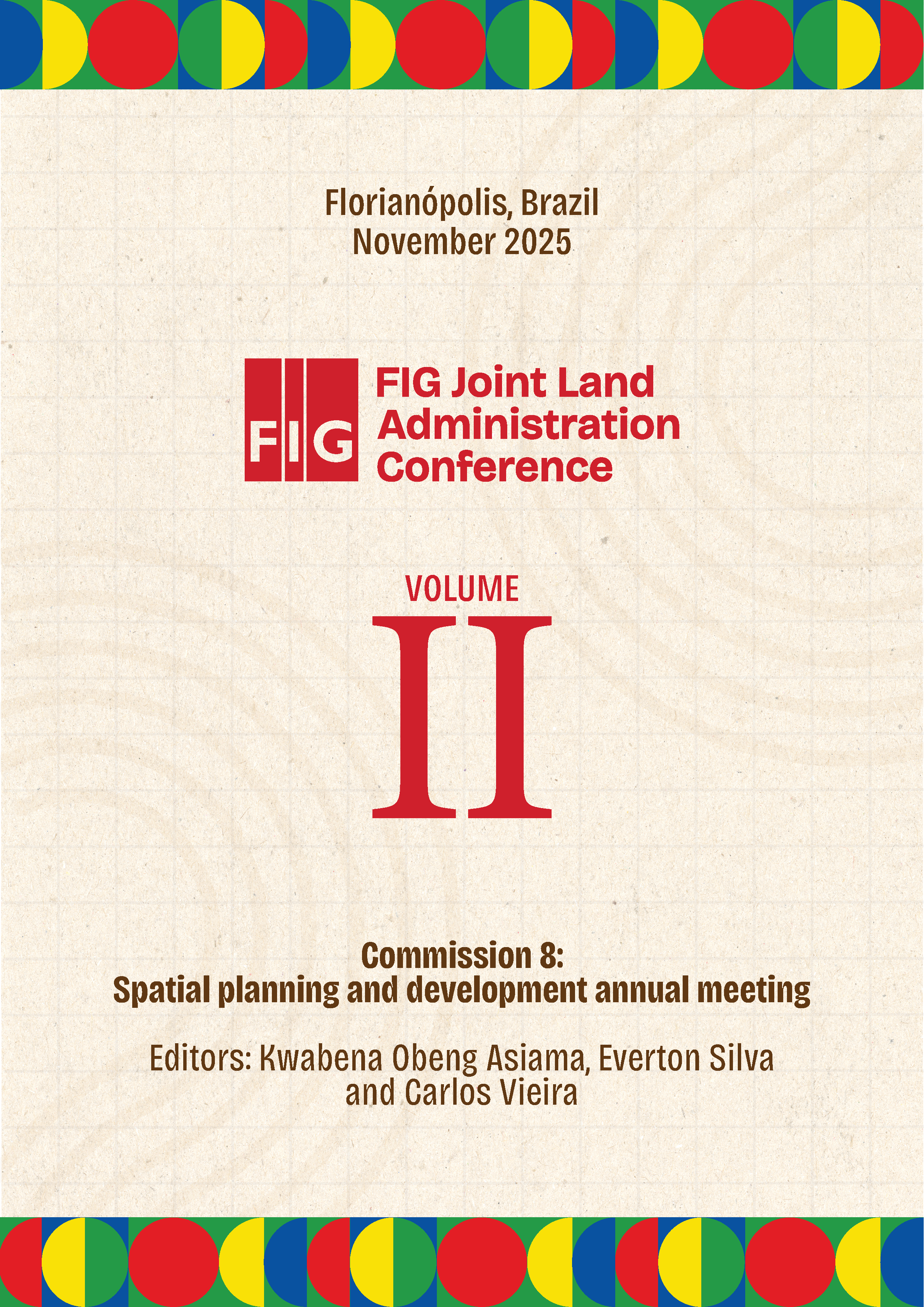Towards Extended Digital Building Passports for Urban Sustainability: Developing a GIS-Based Dashboard Using Multi-Source Data — A Case Study from Türkiye
Palavras-chave:
Energy performance of buildings, Building passport, Land administration, Sustainable citiesResumo
The built environment plays a crucial role in achieving energy efficiency and advancing sustainable development, where structured, interoperable, and accessible building information has become indispensable. In line with the European Union’s Energy Performance of Buildings Directive (EPBD) and the emerging framework of Digital Building Passports (DBPs), there is an increasing emphasis on integrating building-level energy performance data with broader land administration related data including building and apartment unit characteristics, socio-economic characteristics, public administration and public law restriction zones, earthquake risk zones and distance to social, educational, transportation areas. DBPs offer a promising source of data for tracking the lifecycle of buildings, encompassing attributes such as energy use, material composition, and renovation history. However, their potential can only be realized when supported by advanced spatial data infrastructures that enable integration, visualization, analysis, dissemination, and decision-making. This paper presents the design and implementation of a GIS-based dashboard for extended DBPs, which consolidates heterogeneous data sources including cadastral records, energy performance certificates, socio-economic indicators, and spatial accessibility metrics. The developed dashboard dynamically represents building- and unit-level characteristics (e.g., age, geometry, use type), energy performance data, administrative and cadastral attributes, demographic data, and accessibility to key urban services. By enabling comprehensive visualization and analysis, the dashboard may contribute to a practical tool for policymakers, urban planners, energy authorities, and land administration agencies. It may also support the assessment of energy efficiency strategies and the advancement of sustainable urban development, thereby aligning with climate resilience and digital transformation objectives at both local and national levels


